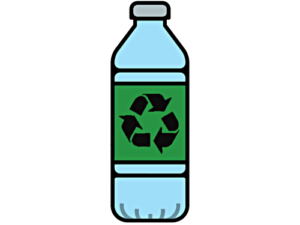
The COVID-19 pandemic has been devastating to people worldwide, overwhelming hospitals, shutting down businesses, causing markets to tank in hours, and worst of all, killing over 100,000 as of April 10. However, how do single-use plastics factor in to this crisis? With our government doing their best to try protect the population from this pandemic, the Plastic Industry Association requested the U.S. Department of Healthto endorse that “single-use plastics are the most sanitary choice when it comes to many applications”.
It’s not fair to say they are taking advantage of the situation, as it is true that single-use plastics that can be disposed of easily are a great choice. The Plastic Industry Association is mainly focusing on bags used to transport items, especially food. Whether one is using it a reusable bag to transport groceries, or takeout food, bacteria can thrive on it. This bacteria can then be transferred to other surfaces, such as drawers or cabinets inside homes.
However, John Hocevar of Greenpeace USA believes that Plastic Companies are seeing this as a chance to boost sales of their products. I don’t agree with this statement, as corporations would be taking a big risk if something like this got out. They simply can’t use a global pandemic that has killed tens of thousands as a chance to increase sales.
The National Institutes of Health, CDC, UCLA, and Princeton University did a study on whether the virus could survive on plastic and came back with surprising results. The virus can not only survive on plastic, but can remain stable and have the ability to infect someone for up to two to three days. This contradicts the statement that single-use plastics are more sanitary than reusable materials.
Granted, single-use plastics are meant to be thrown away, but what if one reuses this plastic, in the hopes of preventing pollution? In this case the virus can as easily be transmitted on these single-use plastics as it is on other reusable cloth bags, etc. The claims made by the Plastic Industry Association are not true, and they aren’t completely factual.
I agree that this shouldn’t be our main concern, and we should be finding out how to rapidly produce ventilators and masks for those that need them instead of worrying about whether plastic bags are a transmission vector. I wrote about this because I am worried that plastic companies may be trying to take advantage of the pandemic. Apart from that, I hope that everyone is doing well during quarantine!
